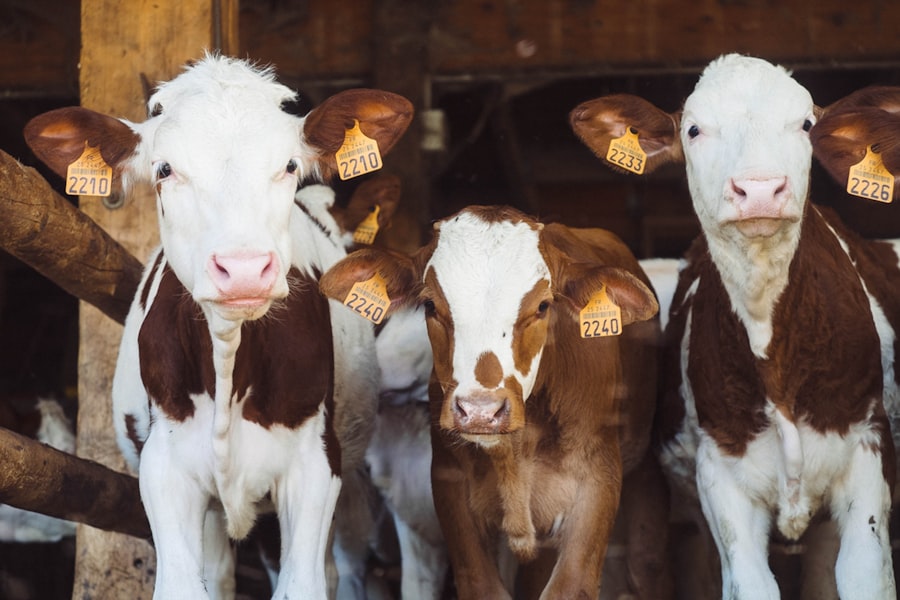Geese have been domesticated for thousands of years and have a long history of being kept by humans. They were first domesticated in ancient Egypt and were later introduced to Europe and other parts of the world. Geese were primarily kept for their meat, eggs, and feathers, but they also served as guard animals due to their loud honking and aggressive behavior towards intruders.
There are several reasons why people choose to keep geese as pets. One reason is their beauty – geese are elegant birds with striking plumage and graceful movements. Additionally, geese are known for their intelligence and can form strong bonds with their human caretakers. They are also highly social animals and enjoy the company of other geese or even other poultry species.
Key Takeaways
- Keeping geese can be a rewarding experience for those who are willing to put in the effort.
- Understanding the behavior of geese is important for their care and well-being.
- Geese can make great pets, but they require a lot of space and attention.
- Basic requirements for keeping geese include access to water, shelter, and proper nutrition.
- Feeding and watering geese should be done with care and attention to their dietary needs.
Understanding the behavior of geese
Geese are highly social animals that live in flocks and have a complex social structure. They communicate with each other through a variety of vocalizations, body language, and displays. For example, geese will honk loudly to alert the flock of potential danger or to communicate with other geese in the area.
Geese are also known for their protective nature. They will fiercely defend their territory and flock from any perceived threats, including humans or other animals. This makes them excellent guard animals, as they will sound the alarm if they sense any danger.
The suitability of geese as pets
Keeping geese as pets has both pros and cons. On the positive side, geese are relatively low-maintenance animals that require minimal grooming and attention. They are also hardy birds that can adapt to a variety of climates and environments.
Geese can also be good companions and provide entertainment with their playful antics. They can form strong bonds with their human caretakers and enjoy being part of a flock or family.
However, there are also some drawbacks to keeping geese as pets. Geese can be noisy animals, especially during breeding season when they are more vocal. They also produce a significant amount of waste, which can be messy and require regular cleaning.
In comparison to other poultry animals, geese have some unique characteristics. They are larger and more aggressive than chickens or ducks, which can make them more challenging to handle. However, they are also more protective and can serve as effective guard animals.
The basic requirements for keeping geese
When considering keeping geese as pets, it is important to ensure that you have the necessary space and resources to meet their needs. Geese require a large outdoor area to roam and graze, as well as access to water for swimming and bathing.
Geese are adaptable birds that can tolerate a wide range of climates, but they do require some protection from extreme weather conditions. They need access to shade in hot weather and shelter from rain, wind, and cold temperatures.
It is also important to check the legal requirements for keeping geese in your area. Some municipalities may have restrictions on the number of geese you can keep or require permits for keeping them.
Feeding and watering geese
Geese are herbivores and have specific dietary needs. They require a balanced diet that includes a variety of grasses, grains, and vegetables. It is important to provide them with access to fresh grass or pasture for grazing, as well as supplemental feed that is specifically formulated for geese.
In addition to food, geese also need access to clean water for drinking and bathing. They enjoy swimming and bathing in water, so it is important to provide them with a shallow pool or pond where they can engage in these activities.
Feeding geese should be done on a regular schedule to ensure they receive adequate nutrition. It is recommended to feed them twice a day – once in the morning and once in the evening.
Housing and shelter for geese

Geese require housing and shelter to protect them from the elements and predators. There are several options for housing geese, including simple shelters, sheds, or even converted barns. The housing should provide enough space for the geese to move around comfortably and have access to nesting areas.
Bedding materials such as straw or wood shavings can be used to provide insulation and comfort for the geese. The bedding should be changed regularly to maintain cleanliness and prevent the buildup of waste.
Cleaning and maintenance of the housing is essential to ensure the health and well-being of the geese. Regular cleaning of the bedding and removal of waste is necessary to prevent the spread of disease and maintain a clean living environment.
Health concerns and how to care for sick geese
Like any animal, geese can experience health issues that require attention and care. Some common health issues in geese include respiratory infections, parasites, and foot problems.
Preventive measures such as regular vaccinations, deworming, and proper nutrition can help reduce the risk of illness in geese. It is also important to provide a clean living environment and practice good hygiene when handling geese.
If a goose does become sick, it is important to seek veterinary care as soon as possible. Treatment options may include antibiotics, antiparasitic medications, or supportive care such as providing warmth and fluids.
The benefits of keeping geese
There are several benefits to keeping geese as pets. One benefit is their ability to produce eggs and meat. Geese are known for their large eggs, which are prized for their rich flavor and high nutritional value. They also produce lean meat that is low in fat and high in protein.
Geese can also be beneficial in the garden or on a farm. Their waste can be used as fertilizer, enriching the soil and promoting healthy plant growth. Additionally, geese are natural pest controllers and can help keep the population of insects and other pests in check.
The challenges of keeping geese
While there are many benefits to keeping geese, there are also some challenges to consider. One challenge is the noise and mess that geese can create. They are loud animals, especially during breeding season, and their honking can be disruptive to neighbors. Additionally, geese produce a significant amount of waste, which can require regular cleaning and maintenance.
Another challenge is the potential for predators to prey on geese. Geese are vulnerable to attacks from predators such as foxes, raccoons, and birds of prey. It is important to provide adequate protection and secure fencing to keep geese safe from these threats.
Keeping geese also requires a significant amount of time and effort. They require daily care, including feeding, watering, and cleaning. Additionally, they need regular attention and social interaction to thrive.
Is keeping geese right for you?
Keeping geese as pets can be a rewarding experience for those who have the space, resources, and commitment to meet their needs. Geese are beautiful, intelligent animals that can form strong bonds with their human caretakers. They provide entertainment, companionship, and can even serve as effective guard animals.
However, it is important to carefully consider the pros and cons of keeping geese before making a decision. Geese can be noisy and messy, require adequate space and shelter, and need regular care and attention. They also have specific dietary needs and may require veterinary care at times.
If you are willing to put in the time and effort required to care for geese, they can be a wonderful addition to your home or farm. They offer unique benefits such as egg and meat production, fertilizer production, and pest control. Ultimately, the decision to keep geese should be based on your individual circumstances and ability to provide for their needs.
If you’re considering keeping geese, you might also be interested in learning about creating the perfect chicken coop for your feathered friends. Poultry Wizard offers a helpful article on chicken coop run plans, which provides valuable insights and tips on designing a safe and functional outdoor space for your chickens. Whether you’re starting from scratch or looking to convert an existing shed into a chicken coop, Poultry Wizard has got you covered with their article on how to convert a shed into a chicken coop. And if you’re looking for inspiration to create a cozy and inviting interior for your chicken coop, check out their article on chicken coop interior ideas. With these resources, you’ll be well-equipped to provide a comfortable and secure home for both geese and chickens.
FAQs
What are geese?
Geese are waterfowl birds that belong to the family Anatidae. They are known for their long necks, webbed feet, and distinctive honking sound.
Are geese easy to keep?
Geese can be easy to keep if you have the right setup and knowledge. They require a secure enclosure, access to water, and a balanced diet. They also need regular care and attention.
What do geese eat?
Geese are herbivores and primarily eat grass, weeds, and other vegetation. They also enjoy grains and seeds, such as corn and wheat.
Do geese need water?
Yes, geese need access to water for drinking, bathing, and swimming. A pond or other body of water is ideal, but a large water trough can also work.
How much space do geese need?
Geese need a minimum of 20 square feet of space per bird in their enclosure. They also need access to a larger area for grazing and exercise.
Do geese make good pets?
Geese can make good pets for those who have the space and time to care for them properly. They are social animals and can form strong bonds with their owners. However, they can also be noisy and messy.
What are some common health issues for geese?
Common health issues for geese include respiratory infections, parasites, and injuries from predators or other birds. Regular veterinary care and proper nutrition can help prevent these issues.
Meet Walter, the feathered-friend fanatic of Florida! Nestled in the sunshine state, Walter struts through life with his feathered companions, clucking his way to happiness. With a coop that’s fancier than a five-star hotel, he’s the Don Juan of the chicken world. When he’s not teaching his hens to do the cha-cha, you’ll find him in a heated debate with his prized rooster, Sir Clucks-a-Lot. Walter’s poultry passion is no yolk; he’s the sunny-side-up guy you never knew you needed in your flock of friends!







